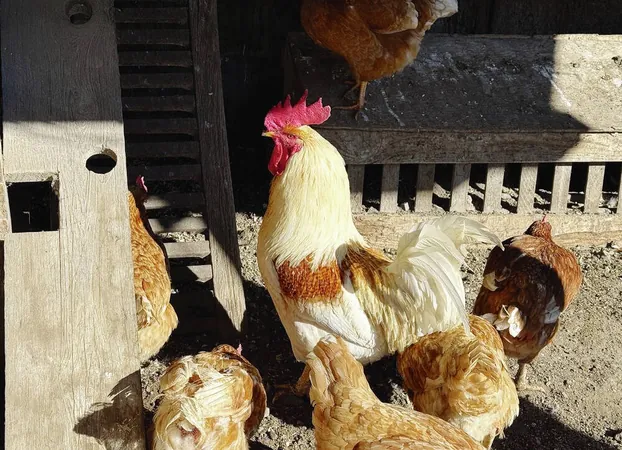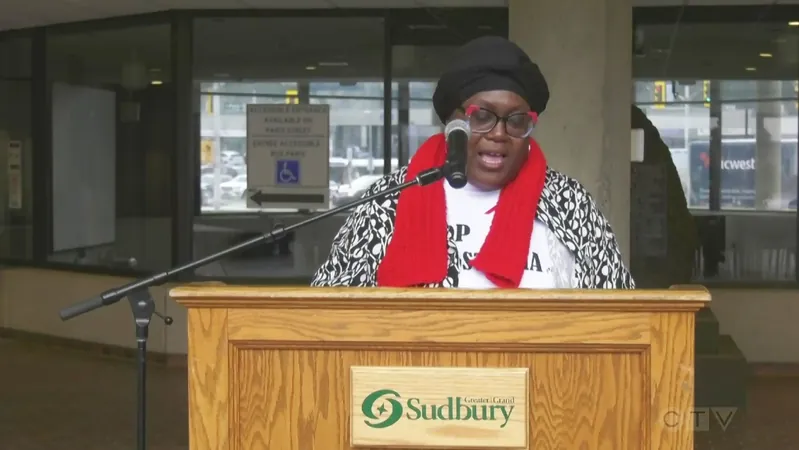
Avian Flu Outbreak Shakes Saanich Peninsula Poultry Farm: What You Need to Know!
2024-11-29
Author: Sophie
Avian Flu Outbreak on Saanich Peninsula
The Canadian Food Inspection Agency has confirmed that the highly pathogenic avian influenza virus has infiltrated a small non-commercial poultry farm on the Saanich Peninsula, located in British Columbia’s capital region.
On November 21, a flock of approximately 60 chickens tested positive for the virus. Agriculture Minister Lana Popham, who was notified last week, stated that the name and location of the affected farm have not been disclosed to the public for privacy reasons.
Risks and Responsibilities
“This time of year is critical as wild birds migrate, bringing with them the potential for contagion,” Popham explained, warning that the outbreak poses a significant risk not only to farmed birds but also to backyard chicken populations. The minister emphasized that preventing the spread of avian flu is primarily the responsibility of federal authorities, while local farmers must follow strict biosecurity measures, such as keeping chickens indoors and limiting equipment movement between farms.
Culling and Compensation Concerns
Unfortunately, the response may involve culling the infected flock, a procedure that carries emotional and financial burdens for farmers, many of whom live on their land with their families. Popham noted, “It's devastating for farmers; they must muster extraordinary courage to endure such hardships. Furthermore, compensation for culling has been reported to be delayed, prompting Popham to write to her federal counterpart advocating for expedited payments to alleviate financial pressures on affected farmers.”
Human Health Considerations
The Canadian Food Inspection Agency has reported a staggering 56 infected premises within British Columbia, contributing to a total of 65 cases across Canada. Although human infections are rare, a notable case involving a teenager in critical condition has emerged. Currently hospitalized at B.C. Children’s Hospital on a respirator, the young patient is infected with the H5N1 strain of avian flu. As health officials investigate, no connections have been traced back to outbreaks on poultry farms, with the virus closely matching those found in wild birds detected in the Fraser Valley.
Public Health Recommendations
Provincial health officer Bonnie Henry reassured the public that, while the risk of human transmission remains low, preventive measures are crucial. She recommended washing hands frequently, avoiding contact with dead or ill animals, and staying updated on vaccinations, particularly the seasonal flu shot.
Current Situation and Call to Action
The situation remains grave, as statistics reveal that nearly 6.9 million birds in British Columbia have perished or been culled due to the virus. Popham urges anyone who spots deceased wild birds to notify the Canadian Food Inspection Agency to help control the spread and facilitate testing of the carcasses.
As the avian flu crisis unfolds, the consequences on both the poultry industry and public health are undeniably severe. Stay vigilant and informed—this is a situation that could impact us all!









 Brasil (PT)
Brasil (PT)
 Canada (EN)
Canada (EN)
 Chile (ES)
Chile (ES)
 España (ES)
España (ES)
 France (FR)
France (FR)
 Hong Kong (EN)
Hong Kong (EN)
 Italia (IT)
Italia (IT)
 日本 (JA)
日本 (JA)
 Magyarország (HU)
Magyarország (HU)
 Norge (NO)
Norge (NO)
 Polska (PL)
Polska (PL)
 Schweiz (DE)
Schweiz (DE)
 Singapore (EN)
Singapore (EN)
 Sverige (SV)
Sverige (SV)
 Suomi (FI)
Suomi (FI)
 Türkiye (TR)
Türkiye (TR)